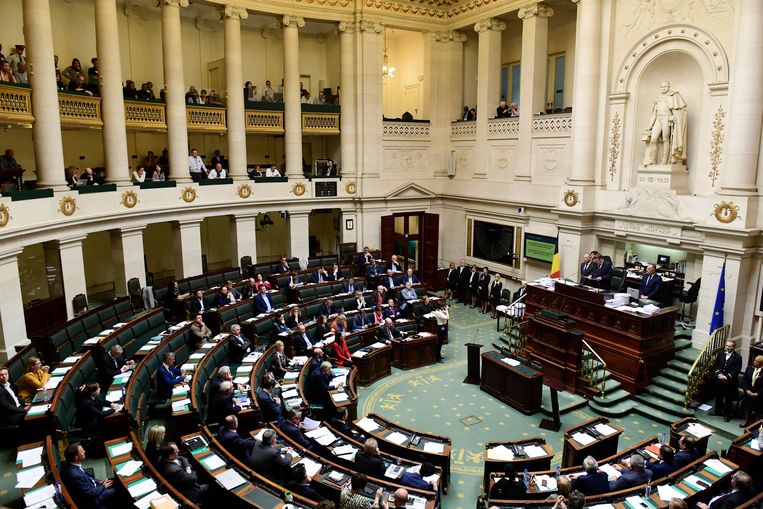The role of Belgium’s language communities in Brussels came up for discussion at different fora this weekend, with the Parti Socialiste (PS), Nieuwe Vlaams Alliantie (N-VA) and Greens all weighing in on the issue.
For PS President Paul Magnette, Belgium would function better if it were based on four regions, which could imply the end of the Communities in Brussels.
“Let’s try to have a Belgium that functions with four regions,” the leader of the French-speaking Socialists said on Sunday on the RTL-TV’s ‘Cest pas tous les jours dimanche’ programme.
Queried on the issue two days before on VRT, Magnette had come out against the current system in Brussels, where the French and Dutch language communities are each competent in education, culture, media and so-called personal matters. “Having two communities in Brussels makes no sense to us,” he said, advocating bilingual education in the capital.
He feels the waning importance of the communities in the capital is reflected in the change in the perspective of its Dutch-speaking residents, who see themselves more and more as ‘Bruxellois’ above all. "Brussels has been dominated for too long by the choices of others,” Magnette added.
The fate of the capital had also been mentioned on Saturday by N-VA President Bart De Wever in l’Echo and De Tijd dailies. Over Summer, the Flemish nationalists had developed a draft compromise with the socialists that included an institutional aspect, but it was opposed by the liberals and ecologists, so it failed to garner enough support. However, the nationalist leader still cherishes the idea of a “historic compromise” with the PS in 2024.
De Wever feels two essential points need to be settled. One is financing the new State structure and the Capital Region. The other, he says, is “knowing what we’ll do with Brussels in this new structure.”
“Naturally, the Francophones want to lay their hands on the capital. Each year their ambition in this regard increases due to the way Brussels is changing,” he said. “What was historically a Flemish city has become a cosmopolitan one without a dominant culture, with an increasingly strong penchant for a ‘city-state’ type management. These are two main things that we’ll have to discuss and for which we’ll have to find a historic compromise.”
For their part, the Greens had supported the idea of bilingual education in the regions in 2019 during a debate on the list of Constitutional articles open to review.
"Brussels needs an effective, representative policy,” Brussels Minister Elke Van den Brandt tweeted on Sunday. “The central issue is the following: how to organise policy in such a way that it takes into consideration the diversity of a city with all the cultures of the entire world, a Belgian and European capital.”
“Brussels resembles Belgium’s complexity,” she added. “It’s necessary to re-examine the roles of communities, regions and communes without any taboos, together with the Bruxellois and not above their heads.”
The Brussels Times

